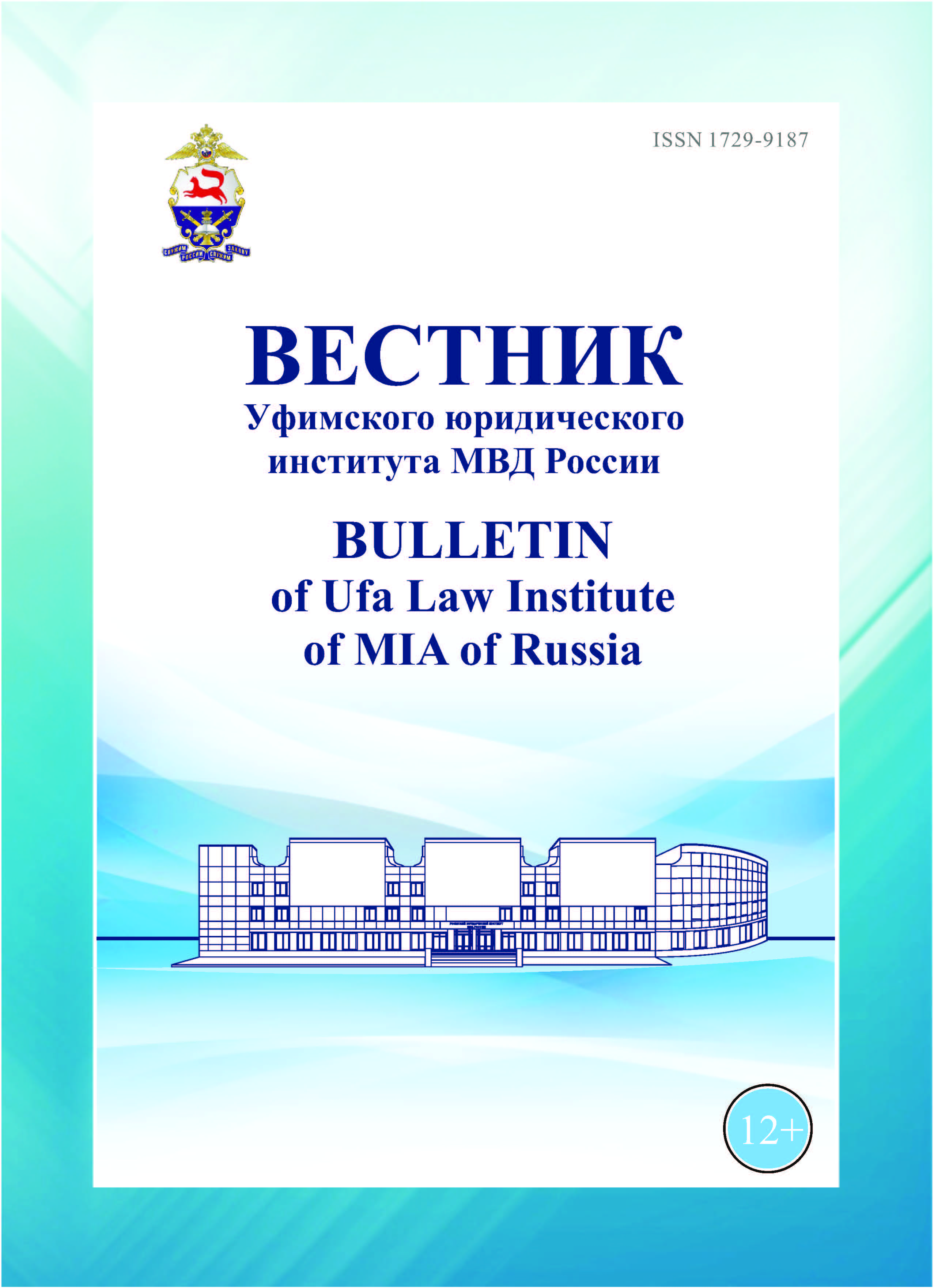from 01.01.2001 until now
Ufa Law Institute of the Russian Interior Ministry (Chair of the foreign and Russian languages, Assistant Professor)
employee from 01.01.2001 to 01.01.2025
UDC 811
The article deals with the issues of formation of professionally-focused foreign language lexical competence through the compilation of terminological dictionaries in the course of educational activities. It is emphasized that the main purpose of developing of a dictionary of a specialty is the formation of a foreign-language vocabulary of a student as a system of concepts of a certain field of knowledge expressed by lexical means of a foreign language with their extensive connections and relationships. After analyzing of the scientific methodological literature the author formulates the functions and components of the legal terminological dictionary, describes the stages of its formation. The paper proposes the most effective methods of selecting of terminological lexical units from the electronic dictionaries for compiling of the “Law” educational dictionary. The tasks for mastering and consolidating the terminological vocabulary for organizing of group-work and independent work are given. The characteristics of this teaching method are discussed based on the results of tests and questioning of students.
competence-based approach, professionally focused lexical competence, jurisprudence, lexical minimum, dictionary entry, glossary, educational dictionary, electronic dictionaries
1. Baiburina R. Z. Methodology for developing professionally oriented lexical competence among law school students // Bulletin of the Ufa Law Institute of the Ministry of Internal Affairs of Russia. 2023. No. 2 (100). P. 137–143. (In Russ.)
2. Bordovskaya N. V. Terminological competence of a specialist: manifestation and levels of development // Person and education. 2016. No. 3 (48). P. 4–11. (In Russ.)
3. Yataeva E. V. Educational glossary as a means of developing educational foreign language lexical competence in professional language education: dis. ... cand. of ped. Ekaterinburg, 2007. 297 p. (In Russ.)
4. Ilyina O. A. Lexical minimum in the language of the specialty “Robotics” as the basis for the formation of linguistic and communicative competence of foreign undergraduates // Humanitarian Bulletin. 2013. No. 2 (4). URL: https://hmbul.bmstu.ru/catalog/edu/phil/42.html (access date: 01.02.2024). (In Russ.)
5. Dementieva T. M. Principles of selection of active special vocabulary in professionally oriented teaching of the German language in the field of jurisprudence // TSPU Bulletin. 2016. No. 12 (177). P. 136–148. (In Russ.)
6. Petrusevich P. Yu. Methodology for the formation of lexical competence of schoolchildren when they master several foreign languages: dis. ... cand. of ped. Izhevsk, 2018. 195 p. (In Russ.)
7. Guzova A. V., Savitskaya N. V. Technology of formation of lexical competence on the basis of authentic texts in the specialty // Pedagogy and education. 2020. No. 1. P. 15–26. (In Russ.)
8. Meshcheryakova O. V. Principles of vocabulary selection in teaching aids for students of non-linguistic universities // Science and education: new times. 2018. No. 2. P. 416–421. (In Russ.)
9. Kharina M. V. Application of frequency dictionaries in the process of developing English-language lexical competence of IT students // Open Education. 2018. No. 22 (5). P. 65–73. (In Russ.)
10. Serova T. S., Chainikova G. R. Functions of an educational terminological dictionary as a means of developing foreign language speech lexical competence // Language and Culture. 2015. No. 1 (29). P. 139–145. DOI:https://doi.org/10.17223/19996195/29/15. (In Russ.)
11. DOI:https://doi.org/10.17223/19996195/29/15.
12. Chainikova G. R. The structure of the educational terminological dictionary as a means of developing foreign language lexical competence // Bulletin of PNIPU. Problems of linguistics and pedagogy. 2015. No. 2 (12). P. 93–97. (In Russ.)
13. Chainikova G. R. Methodology for the formation of foreign language speech lexical competence on the basis of an external information base // Philological Sciences. Questions of theory and practice. 2016. No. 4 (58). P. 207–210. (In Russ.)
14. Syulzhina N. K. Methodology for the creation and didactic organization of hypertext in the study of theoretical disciplines in the professional training of a specialist translator: dis. ...cand. of ped. Perm, 2006. 293 p. (In Russ.)
15. Panysheva T. Yu. Formation of professional lexical competence among students of non-linguistic specialties on the basis of Internet dictionaries // Questions of teaching methods at the university. 2012. No. 1 (15). P. 28–33. (In Russ.)
16. Solonitsyna A. S. Cloud technologies as a means of developing foreign language lexical competence of future foreign language teachers // Bulletin of the South Ural State Humanitarian Pedagogical University. 2021. No. 5 (165). P. 160–176. DOI:https://doi.org/10.25588/CSPU.2021.165.5.013. (In Russ.)









